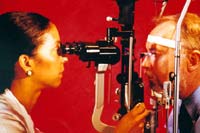This subject area encompasses research and studies in the field of human medicine.
Among the wide-ranging list of topics covered here are anesthesiology, anatomy, surgery, human genetics, hygiene and environmental medicine, internal medicine, neurology, pharmacology, physiology, urology and dental medicine.

Women who drink alcohol during pregnancy may put their daughters at a higher risk of breast cancer, according to researchers at Lombardi Cancer Center at Georgetown University Medical Center. Their findings were reported at the American Association for Cancer Research (AACR) Cancer Prevention meeting in Boston.
“Previous studies have shown a strong link between alcohol consumption and increased breast cancer risk, and this may be caused by alcohol increasing levels of circulating estrogen,”

Mouse studies indicate successful pain relief, University of Pittsburgh researchers say
By “programming” a herpes simplex virus to deliver a gene-mediated pain-blocking protein at the cellular level, University of Pittsburgh researchers have been able to significantly reduce cancer-related pain in mice with tumors, the researchers report in the November issue of the journal Annals of Neurology. The paper, “Herpes vector-mediated expression of proenkephalin reduces bone cancer pain,” i

Researchers have found that immediately treating people who have early stage glaucoma can delay progression of the disease. This finding supports the medical community’s emerging consensus that treatment to lower pressure inside the eye can slow glaucoma damage and subsequent vision loss. These results are reported in the October 2002 issue of Archives of Ophthalmology.
Scientists found that immediate treatment of newly-discovered primary open-angle glaucoma, the most common form of g

Researchers at Stanford University Medical Center have devised a new gene therapy technique that appears to eliminate one of the major health risks linked to gene therapy. The technique, published in the Oct. 15 advanced online edition of the journal Nature Biotechnology, overcomes the need for viral vectors that have plagued gene therapy trials, while retaining the ability to insert therapeutic DNA into specific sites in the chromosomes.
“Our approach provides an alternative that didn’

Fatty acids from fish oils and fatty fish can destroy the power station – the mitochondria- in certain types of cancer cells, making the cells commit suicide.These are the conclusions in a new thesis that Hilde Heimli at the Institute for Nutrition Research at the University of Oslo, in Norway, presented in October 2002. The study was supported by the Norwegian Cancer Society.
Kreft.no: In her thesis, Hilde Heimli has examined how polyunsaturated omega-3 fatty acid is ingested by diff

Conventional estimates for life expectancy after cancer diagnosis have been too pessimistic, suggests a study in this week’s issue of THE LANCET.
There are two main ways of quantifying survival estimates after cancer diagnosis. The conventional method, known as the cohort method, is based on the survival experience of cancer patients whose diagnosis occurred many years ago. This method therefore fails to disclose recent improvements in cancer detection and treatment. A recently developed alt